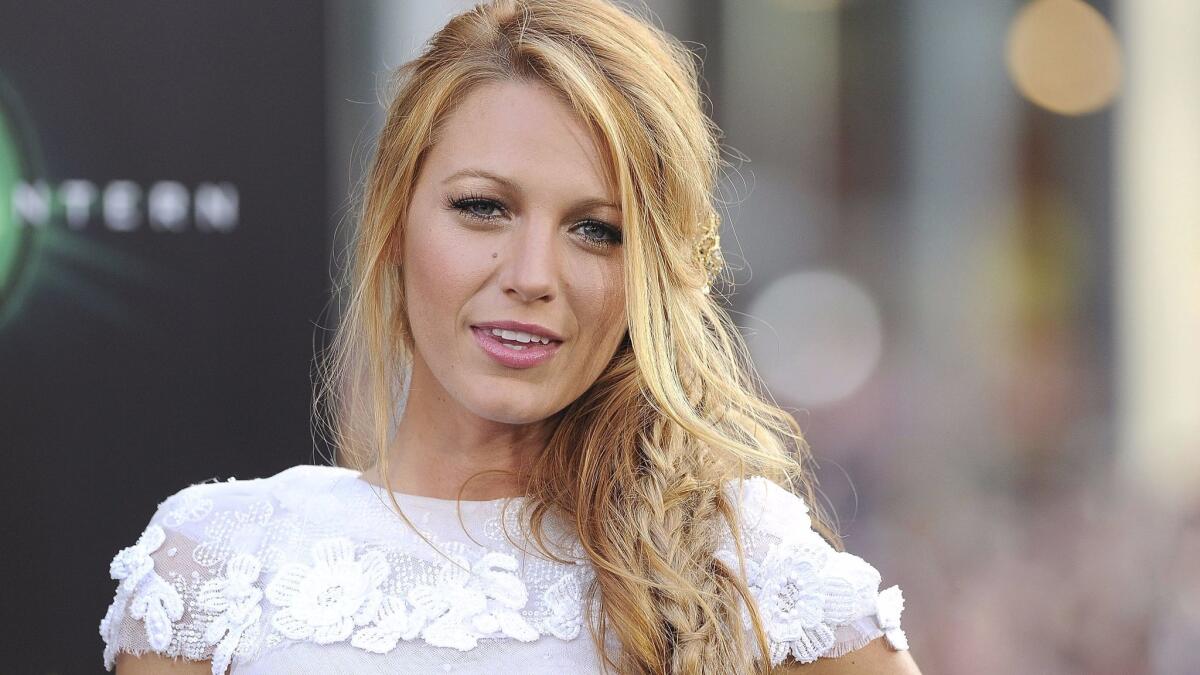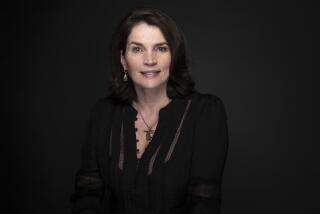The fallout: How the Harvey Weinstein scandal exposed sexual harassment as Hollywood’s dirty secret
- Share via
Dana Brunetti has produced a number of big films over the years: “Captain Phillips,” “The Social Network,” “Fifty Shades of Grey.” But he’s never liked to tell people that he’s a movie producer.
He knows the image it can instantly conjure in their heads.
“I hate telling people I’m a producer because of the stereotype,” Brunetti said. “Because of the ick factor of hitting on girls and ‘I can get you a role in a movie.’ ”
And that was before the Harvey Weinstein scandal broke.
Now, with allegations of decades of sexual harassment and assault against the once-powerful film mogul erupting into public view on a near-hourly basis, Hollywood is finally assessing the level of truth behind the stereotype. Far from a dated anomaly, many in the industry now say, Weinstein is just one example of a wider and still current problem that the industry has ignored – or deliberately swept under the rug – for far too long.
“There’s a lot of abuse in this town,” said producer and director Judd Apatow. “Young actresses are mistreated in all sorts of ways by powerful men who can dangle jobs or access to exciting parts of show business. I think a lot of people are mistreated and they don’t realize how badly they’re being mistreated.”
“Everyone knew [about Weinstein’s alleged behavior], just as they know about other high-profile people with power in the industry who get away with the exact same things,” said screenwriter and producer Kelly Marcel (“Saving Mr. Banks” and the upcoming “Venom.”) “This is far-reaching, it is endemic, and we have to believe that the toppling of this mogul will lead to the toppling of others…. This is a bigger issue than taking down one person.”
» As woes escalate for Harvey Weinstein’s former company, potential buyers begin to circle
Since the earliest days of the studio system, stories of actresses advancing their careers on the so-called “casting couch” have circulated around town (with far more contempt for the women, seen as leveraging their sexuality, than the men in power who were exploiting it.) But in modern Hollywood, though still dominated by men, there was the perception that attitudes toward women have grown more enlightened. When the scandal broke, many referred to Weinstein as a “throwback” or a “dinosaur.” Indeed, in his mea culpa statement last week, the 65-year-old Weinstein attempted to explain his behavior as a product of the era in which he’d grown up, saying, “That was the culture then.”
Now, as the accusations pile up and sink in, many in Hollywood say that that culture has not, in fact, changed – or at least not nearly enough – and that women in the entertainment industry are all too often preyed upon in ways both egregious and more subtle.
“Let’s stop allowing our young women to be sexual cannon fodder,” actress Kate Beckinsale wrote on Instagram on Thursday, sharing her own story of being hit on by Weinstein when she was just 17. “And let’s remember that Harvey is an emblem of a system that is sick, and that we have work to do.”
The Weinstein scandal has prompted a growing number of women to come forward and say they were mistreated, by him and others. In many cases, these women say they either felt too embarrassed or afraid to tell their stories earlier. They anticipated potential repercussions for their careers, or felt that their complaints would fall on deaf ears.
The same fears can extend to the people who surround powerful men.
“People do not want to put their livelihoods at risk,” Apatow said. “That’s why people like Harvey Weinstein and Bill Cosby get to operate like this for so many decades. The people around them — executives, assistants, drivers — they don’t want to risk everything.”

In an exclusive interview with The Times days after the Weinstein scandal broke, actress Blake Lively recounted being regularly harassed by a makeup artist with whom she was working. “He was saying things inappropriately, insisting on putting my lipstick on with his finger,” she said. “I was sleeping one night on location and I woke up and he was filming me. I was clothed, but it was a very voyeuristic, terrifying thing to do.”
Lively reported the issue to the project’s producers but she said nothing was done. “Finally,” she said, “after three months of complaining, they called me into my trailer and said, ‘We need to talk to you.’ I thought, ‘Well finally, they’re going to do something about this man who I had to have touching me all day.’ And they said, ‘Your dog left a poop behind the toilet in your dressing room and our janitor had to pick it up. And this is very serious and we can’t have this happen again.’ ”
Finally, Lively took the harassment issue to her lawyer. An investigation was conducted, and the makeup artist was removed from the project. Still, Lively said, “Our unit production manager wrote him a letter of recommendation because nobody wanted there to be bad blood.”
Everyone loves to hear stories like this in Hollywood. But it’s not limited to Hollywood. It’s every industry’s dirty little secret.
— producer Dana Brunetti
As painful as the Weinstein scandal has been for an industry that likes to project a loftier image of itself, some believe it could ultimately lead to a long-overdue shift in attitudes. “I admire and applaud the women who have come forward to detail the predatory actions of Harvey Weinstein, not just for themselves but for the benefit of everyone,” Kathryn Bigelow, director of such films as “The Hurt Locker” and “Zero Dark Thirty,” told The Times in a statement. “Their bravery and candor illuminate a reprehensible pattern of behavior that erodes our collective morality. What is required is a tectonic shift in the behavior of Hollywood toward women.”
A shift both in attitude and demographics. In an industry in which hiring and pay for women still lags behind men at virtually all levels, mere words will not be enough, says Jordan Horowitz, producer of last year’s hit musical “La La Land.”
“I work with my wife [producer Julia Hart] and we’re very conscious of who we hire and who we work with, making sure all genders and races are represented, especially in production,” Horowitz said. “When you have a number of women in roles of authority, you just wind up with a more comfortable and safe set for women and for any number of underrepresented groups of people.”
And as women assume such positions of authority, Kay Cannon, who executive produced the Netflix series “Girlboss” and directed the upcoming comedy “Blockers,” said they need to use their power to try to prevent even the possibility of harassment.
“We need to start to be really specific about who we work with,” she said. “If you know of something that has happened, draw a line in the sand: ‘No matter how much money this gives me, I refuse to work for someone’ [who is abusive].”
Many in the industry are quick to point out that the issue of sexual harassment is hardly unique to the movie business. “We’re getting the attention because everyone loves to hear stories like this in Hollywood,” said Brunetti. “But it’s not limited to Hollywood. It’s every industry’s dirty little secret. I think there is sexual harassment in all aspects of the country and the world in all businesses.”
Certainly, sexual harassment has been a huge part of this year’s news cycle — Roger Ailes, Bill O’Reilly, L.A. Reid and countless men of less renown have been fired or stepped down amid scandal. But with the Weinstein scandal continuing to be the stuff of screaming headlines, the topic of sexual harassment is at the forefront of everyone’s minds in Hollywood, where many are wondering which power player might be the next to face similar accusations. On Thursday, “Man in the High Castle” executive producer Isa Hackett went public with allegations that she had been harassed by Amazon Studios programming chief Roy Price, an incident that Amazon said in a statement it had “looked at closely” and had addressed internally. Within hours of Hackett’s statement, Amazon put Price on a leave of absence.
That same day, actress Rose McGowan took to Twitter to accuse Amazon of canceling a script she had in development there after she “told the head of your studio that [Weinstein] raped me.”
“I was at dinner with a male colleague of mine the other night, and the conversation wasn’t ‘Can you believe this Harvey stuff?’ so much as ‘Hey, what do we do about so-and-so? Who can we warn about this other guy?’ ” said screenwriter Michael H. Weber, whose credits include the films “The Fault in Our Stars” and the upcoming “The Disaster Artist.” “My conversations have been much more in a proactive sense that this needs to change right away. Simply shrugging or looking the other way or walking away from it isn’t enough.”
Times staff writer Glenn Whipp contributed to this report.
Twitter: @joshrottenberg
ALSO:
Harvey Weinstein’s legacy: A first step to removing the industry’s systemic sexism
Rose McGowan claims Harvey Weinstein raped her, urges Jeff Bezos to ‘stop funding rapists’
Harvey Weinstein went from power player to pariah in less than a week. Here’s how it happened
UPDATES:
5:36 p.m.: This story has been updated with the fact that Roy Price has been put on a leave of absence.
This article was originally published at 4:10 p.m.
More to Read
Only good movies
Get the Indie Focus newsletter, Mark Olsen's weekly guide to the world of cinema.
You may occasionally receive promotional content from the Los Angeles Times.










